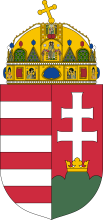Resource information
The purpose of this Act is to establish the fundamental objectives and rules of regional development and land use planning, and to define the institutional system therefor. This Act shall apply to the implementation of regional development and land use planning duties on national and regional level, and the provisions of this Act shall apply to natural persons and legal entities, as well as unincorporated organizations participating in or affected by the above activities. This Act determines, in particular, the scope of duties and powers of central public authorities related to regional development and land use planning (the Parliament, the Government, the National Council for Regional Development, the Minister of Agriculture and Rural Development and other ministers), the avtivities and duties of regional agencies for regional development and land use planning (associations of local governments, county governments, county development councils, territorial development councils, regional develpment councils), the financial instruments usuable for regional development and land use planning, and special rules for land use planning.



